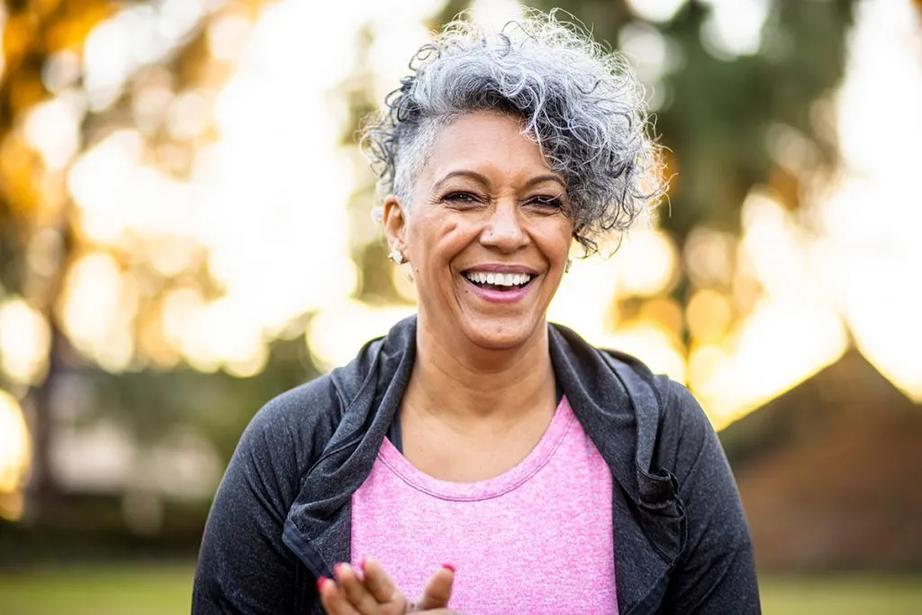




Senior Beginner Watercolor Painting Class
Thursday, April 11th @ 1 PM
Senior Euchre Tournament
Friday, April 12th
@ 1-4 PM
Senior Lunch & Learn: Marjorie Post
Tuesday, April 16th @ 12:15 PM
Senior Lunch Outing: Palombo’s Italian Restaurant
Wednesday, April 17th
@ 11:30 AM
Senior Bingo with The Canton Regency
Thursday, April 18th
@ 12:15 PM
Senior Lunch & Learn: The Gardens of The White House
Tuesday, April 23th
@ 1 PM
April snuck up on me! I feel like I blinked and March was over. March was jam packed with all kinds of fun. We had cardmaking, bingo, two successful bus trips, two fun filled holiday events, painting and a lunch outing! Thank you to all those that attended and made our events so enjoyable! You may notice events will be slowing down a little in April. I will be having knee surgery April 19th and I didn’t want to leave my boss with too much to cover for me. That being said, if you don't see me here for a few weeks, no worries, I’ll be back and hopefully better then ever! I hope you all had a blessed Easter! Wishing you all a April filled with beautiful spring weather, health, and happiness!
May:
5/7
5/14
5/16
5/23











Read this before you buy another bottle of vitamins or minerals.
What are the best vitamins for seniors? Ask 10 different people and you’ll likely hear 10 different answers, most involving a dietary supplement that’s magically cured a variety of health problems.

But can you guess how many supplements experts think all older adults should take?
The answer: Zero.
That might be a little shocking, especially if your medicine cabinet is jammed with pills that you ’ ve been led to believe will treat your health conditions, make you stronger, boost your energy, preserve your memory, and reduce the risk of heart disease and cancer.
About half of people over 65 purchase dietary supplements, but experts say that cash would be better spent on healthy foods.
“I think supplements are seen by many as only having the potential for benefit, but there is a real risk of harm,” says Stephanie Nothelle, M.D., assistant professor of medicine at The Johns Hopkins University School of Medicine.
Dr. Nothelle notes that many supplements have side effects and can interact with common prescription medications. Staying safe gets even trickier if you ’ re an older adult taking multiple medications. The National Institute on Aging (NIA) also points out that vitamins and supplements that work well for a friend or loved one may not have the same — if any — effect on you.
There’s also a chance that you might not be getting what the bottle says, she adds, since supplements aren’t regulated the same way as prescription and over-thecounter medicines. The NIA says it’s best to take supplements only under the advice and guidance of your doctor or registered dietitian.
And there’s another good reason why you may not benefit from supplements: You’re getting everything you need naturally, thanks to a healthy diet and lifestyle.
“For a healthy older adult, I do not routinely recommend any supplements,” says Dr. Nothelle, who specializes in healthcare for older adults. “The best form of vitamins is from the foods we eat. I recommend that all older adults eat a balanced diet of whole, minimally processed foods.”
The NIH’s National Institute on Aging (NIA) agrees. The organization says that “most, if not all, of your daily vitamins and minerals should come from food.”
That means choosing nutrient-dense foods, especially fruits, veggies, fatty fish, nuts, and other whole foods. (Learn more about how to meet your daily needs in our guide to healthy eating for older adults.)
That said, some older adults do need more of certain nutrients. Here are the five supplements to talk about with your doctor.

Read this before you buy another bottle of vitamins or minerals.
“Until recently, many clinicians routinely recommended vitamin D to prevent falls,” Dr. Nothelle says. “But the U.S. Preventative Services Task Force no longer recommends using vitamin D to prevent falls. It does recommend structured exercise programs. ”
In other words, being active is more important.
Since your body makes and absorbs vitamin D when exposed to sun, you might already be getting plenty—or not. Older adults who don’t spend as much time outside or who have skin changes that slow down the body’s production of vitamin D may need extra vitamin D, Dr. Nothelle says.
If you ’ re worried about falls, ask your doctor if you should get a blood vitamin D test to check your levels.
This nutrient keeps nerve and blood cells healthy and protects against a type of anemia that can make you feel exhausted.
“Vitamin B12 needs acid from the stomach to be properly absorbed,” Dr. Nothelle says. Some seniors develop pernicious anemia, a condition where the stomach makes less acid. If you take acid reflux medication (proton pump inhibitors, like Prilosec) or blood sugar medication (like metformin) you might need more vitamin B12.
Again, don’t start taking it before checking with your doctor. “Like vitamin D, vitamin B12 levels can be measured in the blood,” Dr. Nothelle says, “ so treatment with a supplement can be monitored.”
Doctors used to recommend that all women over 50 take calcium to help combat osteoporosis. But more recent research has shown some serious downsides to calcium supplements, such as an increased risk of cardiovascular disease.
Adults over age 50 often do need to boost their calcium level, Dr. Nothelle says, but it doesn’t have to come in pill form. “Eating plenty of dairy, canned fish with soft bones, and dark, leafy greens like kale may be a safer option,” she says.

Read this before you buy another bottle of vitamins or minerals.
Vitamin B6 also makes the NIA’s list of nutrients that older adults sometimes need to boost. Vitamin B6 plays an important role in how well your immune system functions. It helps protect nerves and form red blood cells. Potatoes, bananas, and chicken are good sources. Your doctor can do a blood test to check your level.
Your liver and kidneys make something called carnitine — and it is crucial to the functioning of your mitochondria, which are the power plants in your cells. In fact, some studies link ALCAR supplements with fighting age-related fatigue and cognitive decline.
The NIH Office of Dietary Supplements says ALCAR may be helpful for people with mild cognitive impairment or Alzheimer’s disease. In the studies, subjects took 1.5 to 3.0 grams a day of acetyl-L-carnitine for 3 to 12 months.
As noted with the other supplements, before taking, ask your doctor if this is a supplement that would benefit you.
The NIA encourages all older adults to check with their doctor before taking any supplement. Be sure you understand:
The correct dose your doctor recommends for you
How to take it — for example, with a meal or at a certain time of day
Possible side effects and what to do if you experience any
Which brand they recommend — if none, ask the pharmacist or a registered dietitian
Finally, before purchasing, look for the United States Pharmacopeia (USP) verified mark on the bottle or packaging. USP verifies the identity, quality, strength, and purity of supplements.




Begin seated, holding a ball in both hands with your palms facing each other. Extend your arms forward so the ball rests on your legs, with your elbows slightly bent.
Slowly raise your arms to lift the ball to shoulder level, then lower back down, taking about 3 seconds to raise and lower. Repeat 10-15 times.
Begin seated on the edge of a chair with legs extended, heels on the floor and knees slightly bent.
Point your toes downward, then flex upward.
Do 15 repetitions, relax, then do 15 more repetitions.
Hold the back of a chair. Stand with legs slightly wider than shoulder-width, while pointing toes outward slightly.
Bend your knees slowly, using 2 full seconds to lower yourself. Adjust leg position if needed to keep legs far enough apart so the knees don’t pass your toes as you bend.
Perform 8 times, then rest. Perform another set, doing as many as

You don’t need to lose five dress sizes to see and feel a big difference in your overall health.

Many of us are looking to fit into clothes that we’ll probably never need to wear again. But you don’t need to slim down enough to zip up your wedding dress to improve your wellbeing. Losing just 10 pounds, and in some cases just a tiny bit more, is enough weight loss to have an enormous positive health impact in older adults.
“Even small weight changes can unlock metabolic, neurologic, and cardiac benefits,” says Sanjay Bhojraj, M.D. He is an interventional cardiologist who runs the Well12.Health metabolic health program. “It’s pretty amazing.”
Even if you’d like to wave goodbye to a lot more weight than 10 pounds, experts say to focus on the very first steps. If you lose a pound or two a week, you could see all of the following seven health benefits by the end of next month.
The less body weight you have to move around, the easier it is to get and stay fit. Losing even just 10 pounds can take some pressure off your joints, which allows you to exercise with less discomfort, says Leonard Pianko, M.D. He is a cardiologist in Adventura, Florida.
It can also help you walk or cycle without feeling so out of breath, he says. That can make you more likely to motivate yourself to lose even more weight — if you want to or if your doctor is recommending that you do so.
According to the Mayo Clinic, you can expect blood pressure to drop 1 millimeter of mercury (mm Hg) for every 2.2 pounds you lose. That means a 10-pound weight loss is enough to drop blood pressure by around five points.
Though five points may not sound like a lot, this small drop in pressure can reduce your risk of a heart attack by 10% percent and risk of stroke by 13%, finds research published in The Lancet.
If we could choose where we drop our extra weight first, many of us would point to our waistlines, which thicken as we grow older. But belly fat does start to go away — even with just a 10-pound loss.
When researchers crunched the data from 61 studies, they found that dropping just 5% of your total weight is enough to put a serious dent in deep belly fat, which is the most dangerous kind of fat for overall health. That’s just 10 pounds for a 200-pound person.